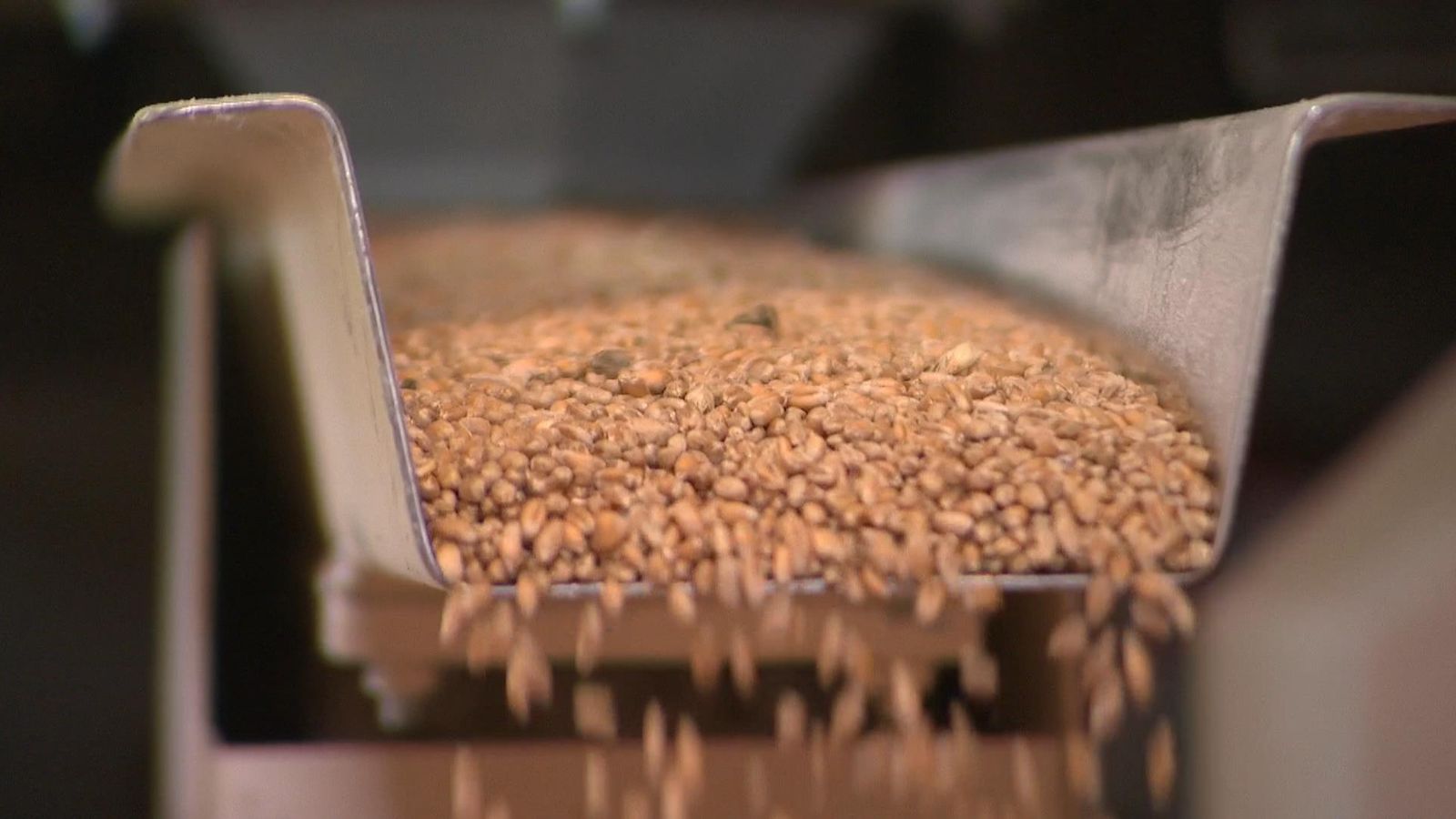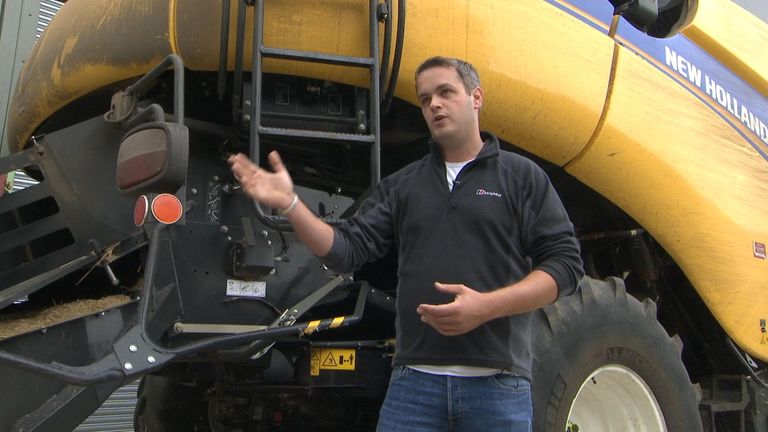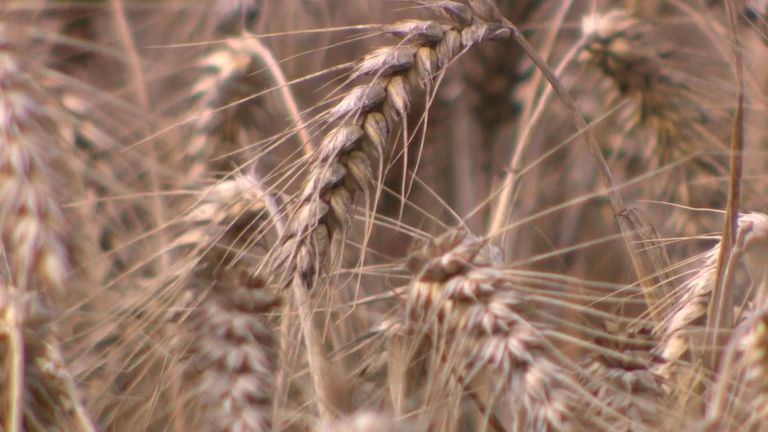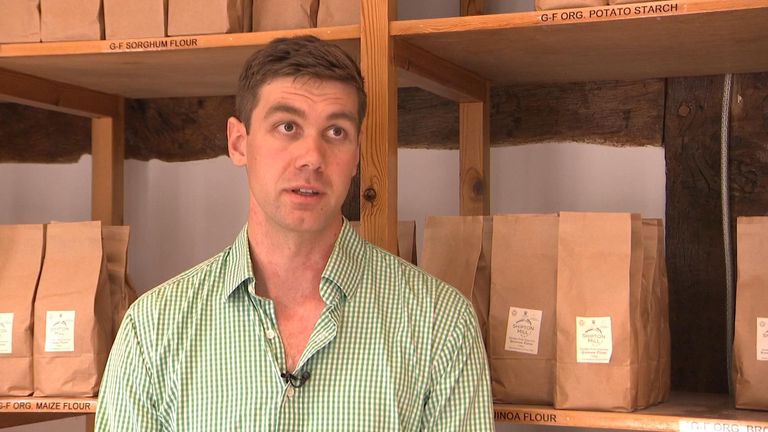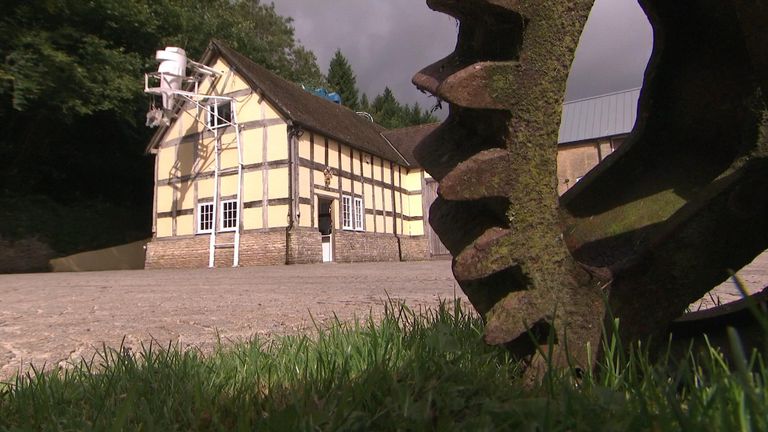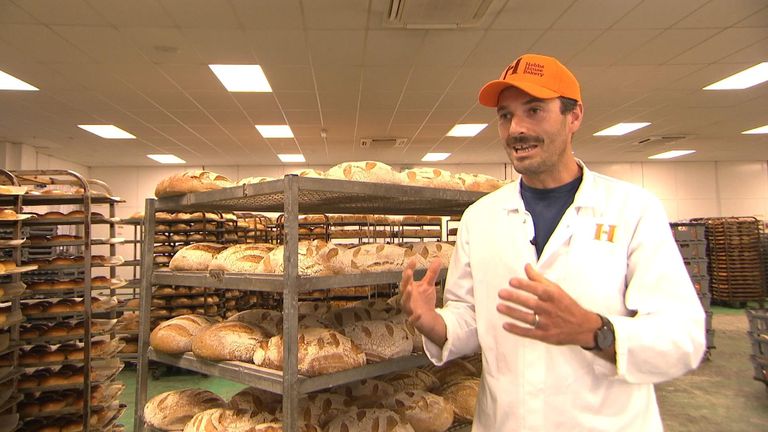Britain’s worst wheat harvest in 40 years is likely to cause a price hike in flour and bread, the industry has warned.
Only about 40% of the usual amount of wheat crop was planted last October due to heavy rain, while crops being harvested now are very poor quality due to droughts earlier in the season followed by lots of August rain, the National Farmers’ Union (NFU) said.
The bad harvest is exacerbated further by the uncertainty of a no-deal Brexit at the end of this year, with fears World Trade Organisation (WTO) tariffs will be imposed on wheat that millers will have to import from overseas to meet demand.
Ed Horton, a farmer in Cirencester, Gloucestershire, said his crops usually yield about 2,500 tonnes of wheat but this year they are down to 580 tonnes.
He told Sky News: “It has a huge knock-on effect on our finances. We’ve produced a third of what we usually would, therefore there’s a large hole in our cash flow and we’ve had to replace wheat with other crops that we don’t make as much money out of.
“For the food chain, there’s a lack of domestically produced quality wheat so we may end up having to import wheat from other parts of the world.”
Joe Lister, of Shipton Mill in Tetbury, Gloucestershire, said the bad harvest has pushed up wheat prices and trying to source the highest quality of wheat for their customers has been challenging.
He said: “Luckily, as a small mill it will be easier for us to source the amount of quality wheat we require from the UK crop.”
He said challenges of the harvest are compounded by uncertainty caused by Brexit.
“In the event of a no-deal Brexit, millers could face a £79-per-tonne tariff on wheat imports from the EU as the UK would be reverting to WTO rules,” he added.
“This creates a lot of uncertainty for the milling industry as to how to cover off the exposure.
“Where we would usually just buy German or French wheat during a bad harvest we don’t know yet what that’s going to cost us in six months’ time.
“That £79 a tonne cannot be absorbed by the milling industry so will be passed onto the baker and the consumer if it is added.”
Henry Herbert, from Hobbes House Bakery in Chipping Sodbury, Gloucestershire, said they try not to pass on any rising wheat prices to their customers but it will be difficult as they need high-quality flour.
“If that means we have to get flour from the continent or Canada we will do so, we will work with our miller to make sure we get the right quality flour,” he said.
“If the wheat harvest is terrible it would affect us to a certain extent, price-wise, because it’s the main ingredient in our product but we try to take a long-term view – if it goes up it will come down – so we can try to keep prices the same.
“It feels like a triple whammy – COVID, a bad harvest and Brexit – but we’ve been going for five generations so I think we can ride it out and continue to create great bread.”
